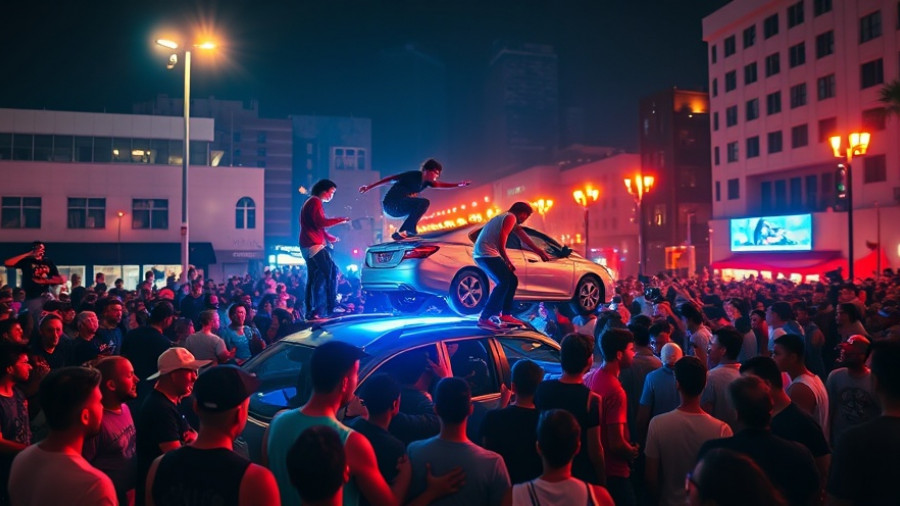
Skateboarding Takes Over Downtown LA: A Community’s Spirit
On a typical sunny Saturday in downtown Los Angeles, a massive skateboarding event unfolded, transforming the city streets and bringing together enthusiasts from everywhere. However, the event soon sparked tensions with law enforcement as officers attempted to manage the large crowd, resulting in clashes that highlighted the complexities of urban policing and community engagement. As skateboarding culture continues to flourish, it raises questions about public space usage and how cities can integrate recreation without conflict.
The Thrill of Skateboarding: More Than Just a Sport
Skateboarding has evolved over the years, transcending its image as a mere recreational activity to becoming a symbol of urban culture, community, and even art. For many, it is a way of life that promotes physical fitness and mental well-being. According to health studies, engaging in physical activities like skateboarding can significantly enhance cardiovascular health, improve strength, and release endorphins that elevate mood.
Social Connections and Community Bonds
This skateboarding event was more than just a thrill for the participants; it was a gathering of like-minded individuals uniting over a shared passion. Events like this foster social bonds, encouraging networking and friendships that extend beyond the skateboard. Communities thrive when they celebrate their unique cultures, creating spaces that engage and empower their residents.
Future Trends in Urban Recreation
As cities expand and focus on urban planning, the demand for inclusive recreational spaces will only grow. Cities like Los Angeles are being challenged to find a balance between accommodating cultural events and maintaining public safety. Innovations in urban design, such as skate parks and open plazas, could help create places where sports aren’t seen as disruptive, but rather as community-enhancing.
Counterarguments: Balancing Freedom and Order
While many celebrate the vibrancy brought by skateboard events, there are legitimate concerns regarding public safety, property damage, and noise. Local authorities prioritize maintaining order, which can sometimes clash with the freedom that skateboarders seek. It is essential for dialogue between the skate community and city officials to find amicable solutions that empower artistic expression while ensuring community safety.
Local Perspective: A Call for Inclusivity in Public Spaces
Los Angeles is known for its diverse population and cultural richness. Exploring how recreational activities like skateboarding can play a part in community narratives reveals the potential for these events to bridge gaps between varying demographics. By understanding what matters most to residents—wellness, connection, and expression—policies can align more effectively with community needs.
Moving Forward: Actionable Takeaways
For individuals interested in promoting community health and inclusivity, engaging with local recreation initiatives can be a way to strengthen ties within neighborhoods. Attending or volunteering at these events helps spread awareness of the benefits of physical activity while building a sense of community pride. By advocating for more inclusive public spaces, residents can enjoy healthier lifestyles that embrace recreational freedom.
Conclusion: Nurturing the Skate Culture
Skateboarding embodies more than just a ride on a board; it signifies a sense of belonging, creativity, and community spirit. As Los Angeles navigates conflicts between law enforcement and cultural expression, there is an essential opportunity for collaboration and dialogue. By fostering spaces that allow for diverse activities, the city can encourage healthy living and socio-cultural connections.
To engage further with the wellness movement in Southern California, consider attending local events or participating in community discussions that focus on public space usage. Your voice matters, and together, we can promote a more inclusive, vibrant future for all.
 Add Row
Add Row  Add
Add 




Write A Comment